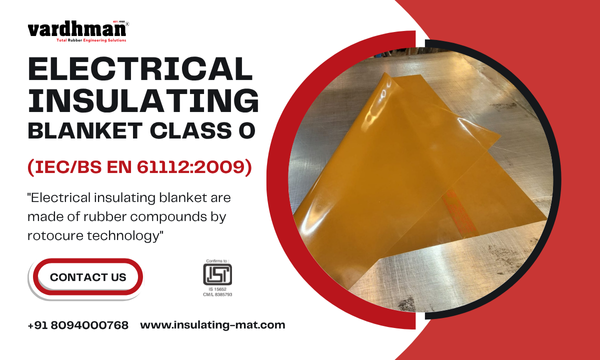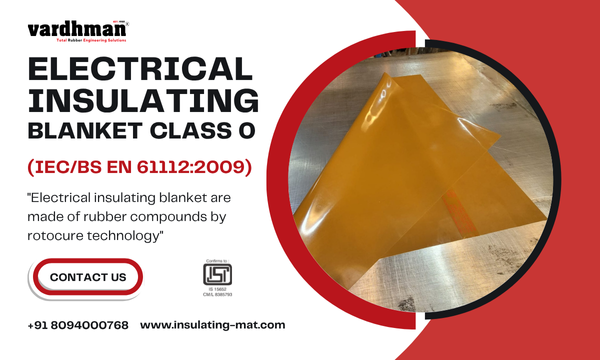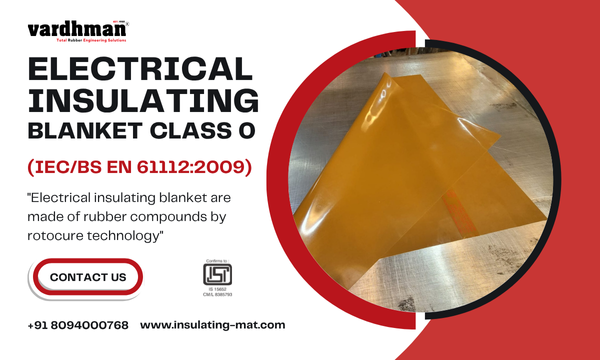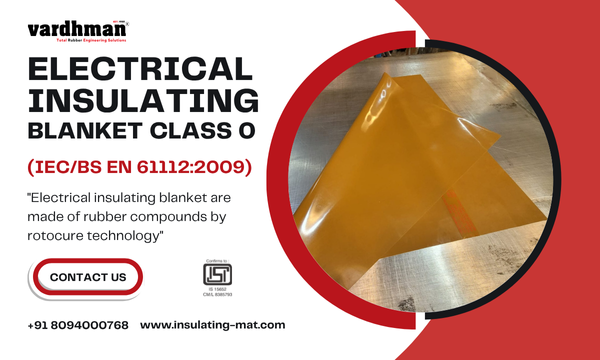
The field of electrical insulation materials is rapidly evolving, driven by technological advancements and the increasing demand for safer, more efficient electrical systems. This article explores the latest innovations that are transforming how we protect against electrical hazards.
Next-Generation Rubber Compounds
Traditional rubber insulation materials are being enhanced with new formulations that offer superior performance:
- Nanocomposite Rubbers: Incorporation of nanoparticles to enhance dielectric strength and thermal stability
- Silicone Hybrid Materials: Combining silicone with organic polymers for improved flexibility and temperature resistance
- Self-Healing Compounds: Materials that can automatically repair minor damage, extending service life
- Flame-Retardant Formulations: Advanced additives that reduce flammability without compromising electrical properties
Advanced Polymer Technologies
Polymer science is delivering breakthrough materials for electrical insulation:
- High-Performance Thermoplastics: Materials like PEEK and PEI that offer exceptional dielectric properties at high temperatures
- Cross-Linked Polymers: Enhanced molecular structures that resist degradation and maintain properties over time
- Bio-Based Insulation: Sustainable materials derived from renewable sources with competitive electrical properties
- Conductive Polymers: Specialized materials that can switch between insulating and conducting states for smart applications
Smart Insulation Systems
The integration of technology with insulation materials is creating intelligent safety systems:
- Embedded Sensors: Insulation materials with integrated sensors that monitor condition and performance in real-time
- Self-Diagnosing Materials: Materials that can detect and report their own degradation or damage
- Adaptive Insulation: Materials that can adjust their properties based on environmental conditions
- IoT-Enabled Safety Mats: Connected insulating mats that provide usage data and maintenance alerts
Graphene and Carbon-Based Materials
Carbon-based materials are revolutionizing electrical insulation:
- Graphene-Enhanced Insulation: Incorporation of graphene to dramatically improve dielectric strength
- Carbon Nanotube Composites: Materials with exceptional thermal conductivity and electrical insulation
- Diamond-Like Carbon Coatings: Ultra-thin coatings that provide superior protection in harsh environments
- Carbon Fiber Reinforcement: Enhanced mechanical strength without compromising electrical properties
Ceramic and Glass-Based Insulation
Advanced ceramic materials are finding new applications in electrical insulation:
- Polymer-Ceramic Composites: Combining the flexibility of polymers with the dielectric strength of ceramics
- Porous Ceramics: Lightweight materials with excellent insulation properties for high-voltage applications
- Glass-Ceramic Hybrids: Materials that offer the best properties of both glass and ceramics
- Transparent Conductive Oxides: Specialized materials for applications requiring both transparency and electrical control
Environmental and Sustainability Considerations
The future of insulation materials includes a strong focus on sustainability:
- Recyclable Insulation: Materials designed for easy recycling at end-of-life
- Low-VOC Formulations: Reduced environmental impact during production and use
- Energy-Efficient Manufacturing: Production processes that minimize energy consumption
- Biodegradable Options: Materials that break down safely when disposed of properly
Industry Applications and Impact
These innovations are transforming various industries:
- Renewable Energy: Improved insulation for solar panels, wind turbines, and energy storage systems
- Electric Vehicles: Lightweight, high-performance insulation for batteries and power systems
- Aerospace: Advanced materials that meet stringent weight and safety requirements
- Medical Equipment: Biocompatible insulation materials for sensitive medical devices
Future Outlook
The next decade will see remarkable advancements in electrical insulation materials:
- Integration of artificial intelligence for predictive maintenance
- Development of materials with self-charging capabilities
- Creation of ultra-thin, high-performance insulation for miniaturized electronics
- Emergence of multifunctional materials that provide insulation plus additional benefits
Conclusion
The future of electrical insulation is bright, with materials that offer superior performance, enhanced safety, and improved sustainability. These innovations will not only protect against electrical hazards more effectively but also enable new technologies and applications that were previously impossible. For safety professionals and facility managers, staying informed about these developments will be crucial for implementing the next generation of electrical safety measures.




